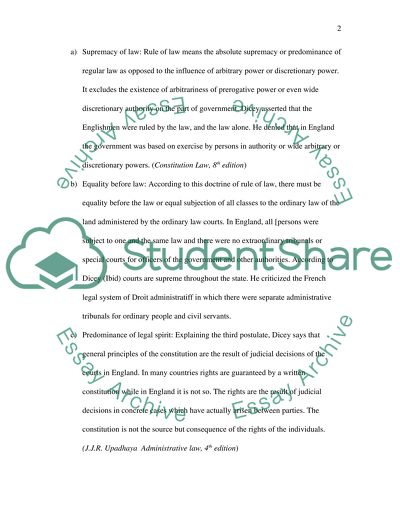Cite this document
(“Rule of law as one of the basic principles of the English constitution Essay”, n.d.)
Retrieved from https://studentshare.org/miscellaneous/1508605-rule-of-law-as-one-of-the-basic-principles-of-the-english-constitution
Retrieved from https://studentshare.org/miscellaneous/1508605-rule-of-law-as-one-of-the-basic-principles-of-the-english-constitution
(Rule of Law As One of the Basic Principles of the English Constitution Essay)
https://studentshare.org/miscellaneous/1508605-rule-of-law-as-one-of-the-basic-principles-of-the-english-constitution.
https://studentshare.org/miscellaneous/1508605-rule-of-law-as-one-of-the-basic-principles-of-the-english-constitution.
“Rule of Law As One of the Basic Principles of the English Constitution Essay”, n.d. https://studentshare.org/miscellaneous/1508605-rule-of-law-as-one-of-the-basic-principles-of-the-english-constitution.


